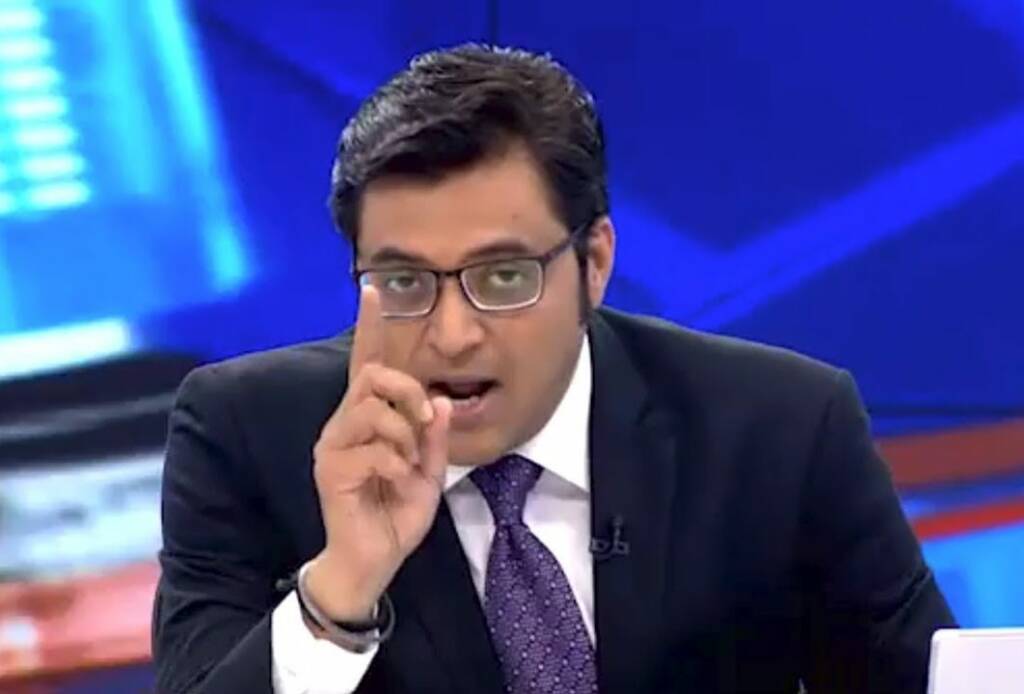On social media, liberals and Pakistan-sympathisers are overawed by a sense of jubilation. The reason? Republic Bharat has been penalised for airing allegedly hurtful, offensive and hateful content against Pakistanis. The United Kingdom’s broadcast and communications regulator, Office of Communications or Ofcom, has imposed a £20,000 fine on Worldview Media Network Limited, which holds the license for broadcasting Republic Bharat in the UK. Apart from finding star journalist Arnab Goswami’s programme “Poochta hai Bharat” telecast on 6th September, 2019 in the UK offensive and derogatory towards Pakistanis, the British watchdog also warned Worldview Media not to re-telecast the said content.
According to ThePrint, Ofcom cited a few examples that it said seemed to convey that all Pakistanis are terrorists: “their scientists, doctors, their leaders, politicians all are terrorists. Even their sports people”; “every child is a terrorist over there. Every child is a terrorist. You are dealing with a terrorist entity.” It said one guest also described Pakistani scientists as “thieves” while another described Pakistanis as “beggars”. Apparently, the British regulator did not like the bare and uncomfortable truth about Pakistan being put out in the open.
Now while the alleged British watchdog must have its reasons, as a third party to the animosity between India and Pakistan, to penalise a nationalist Indian news network, the Indian government must now wake up from its slumber and realise that unlike it, international agencies do not shy away from acting against media outlets which they think are violative of certain guidelines laid down by them in accordance to their own subjective view. While the British regulator has not thought twice before imposing a tremendous fine of £20,000 on Goswami’s channel for merely taking the Indian viewpoint international, the Indian government and regulators (if any) are yet to act against anti-India media networks which continue to flourish domestically, and around the world.
Take for instance media outlets like the BBC, who have time and again derided India and Hindu civilisation, particularly after Prime Minister Modi took office. BBC had once spun a false narrative that Hindu militancy was on the rise, and that the chant of Jai Shree Ram was a ‘murder cry’. Washington Post, Al Jazeera, New York Times are just some of the many outlets who earn big cash by relentlessly portraying India in bad light.
Of course, part of their appetite for running anti-India stories, and reports sympathetic towards the Pakistani narrative on Indian Kashmir stem from the fact that the Indian government has so far shied away from acting tough against them for their devious role in furthering a false image of the country internationally. The only action by the Indian government which one is reminded of is its crackdown on Al Jazeera in 2015 for repeatedly showing distorted maps of India, leading to it facing a ban on telecast for five days. Then, in 2018, the Indian government withdrew the security license of Al-Jazeera, without which the channel cannot broadcast in India. According to an ‘Economic Times’ report, the government had taken the decision after the broadcast of a documentary about militancy in Kashmir that was deemed as being biased.
Learning from the UK regulator’s action against Republic Bharat, the government of India too must make it a point to act tough against international media outlets who seek to defame our country globally. A one-off crackdown against vile media outlets like Al Jazeera while appreciable, will not go a long way in ensuring that foreign media begins behaving itself. For that, the Indian government too must step up its game in order to protect the country’s interests.
